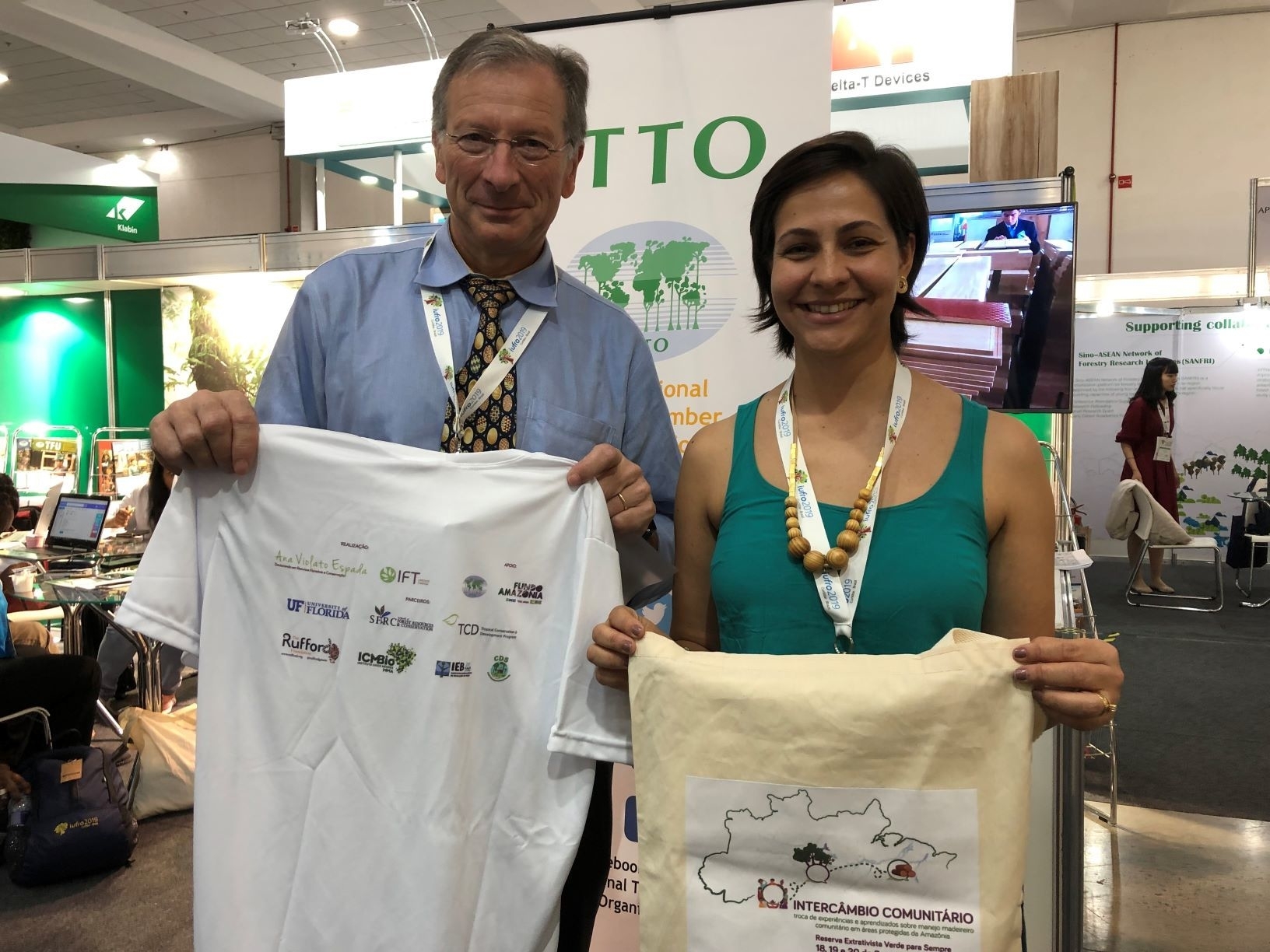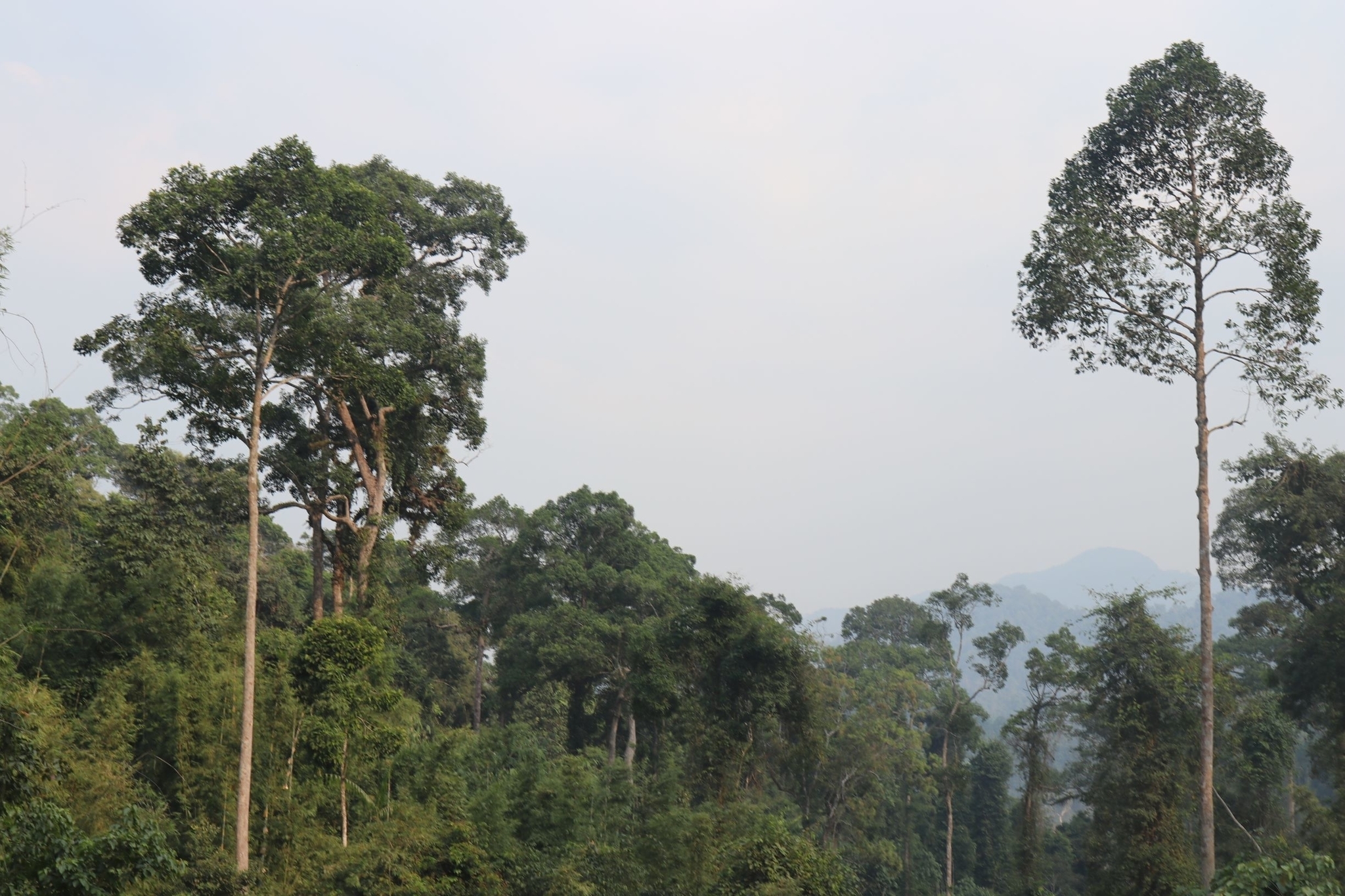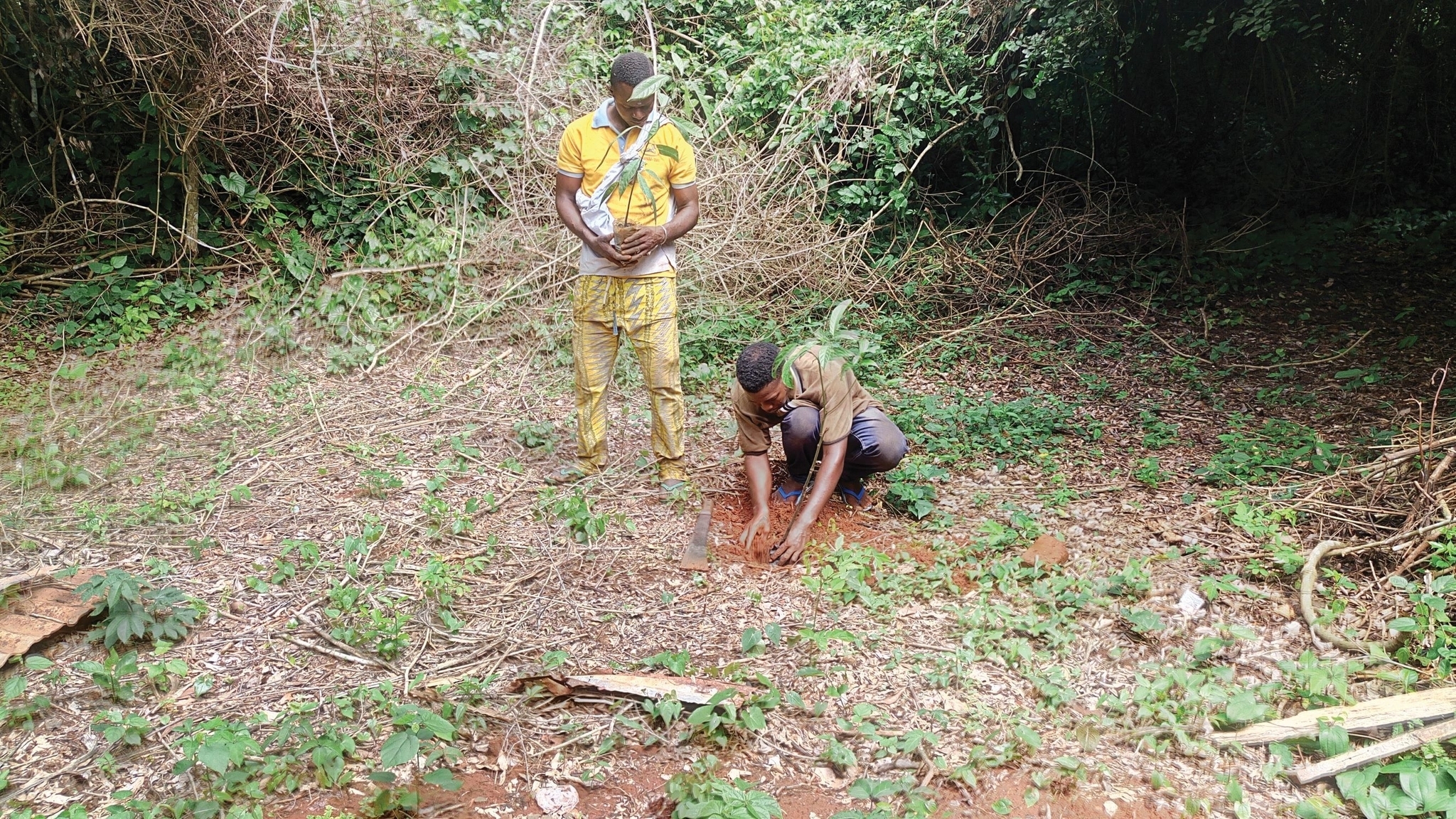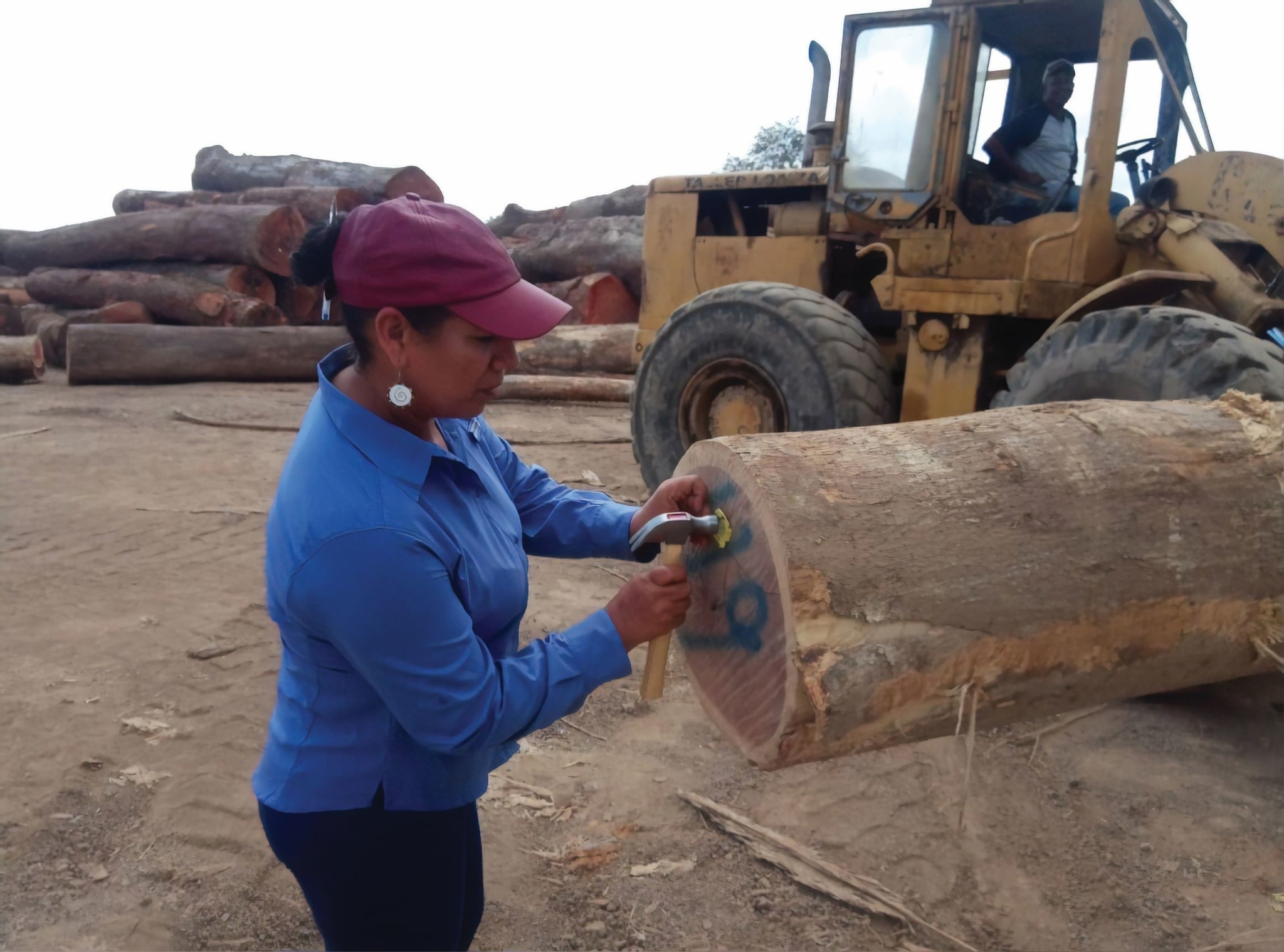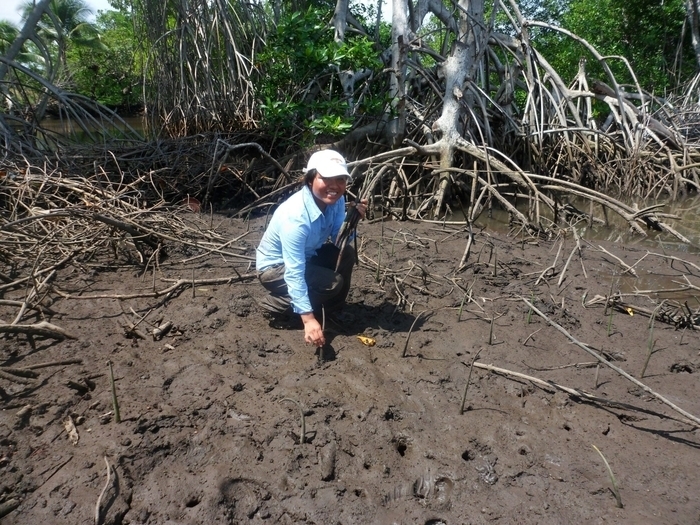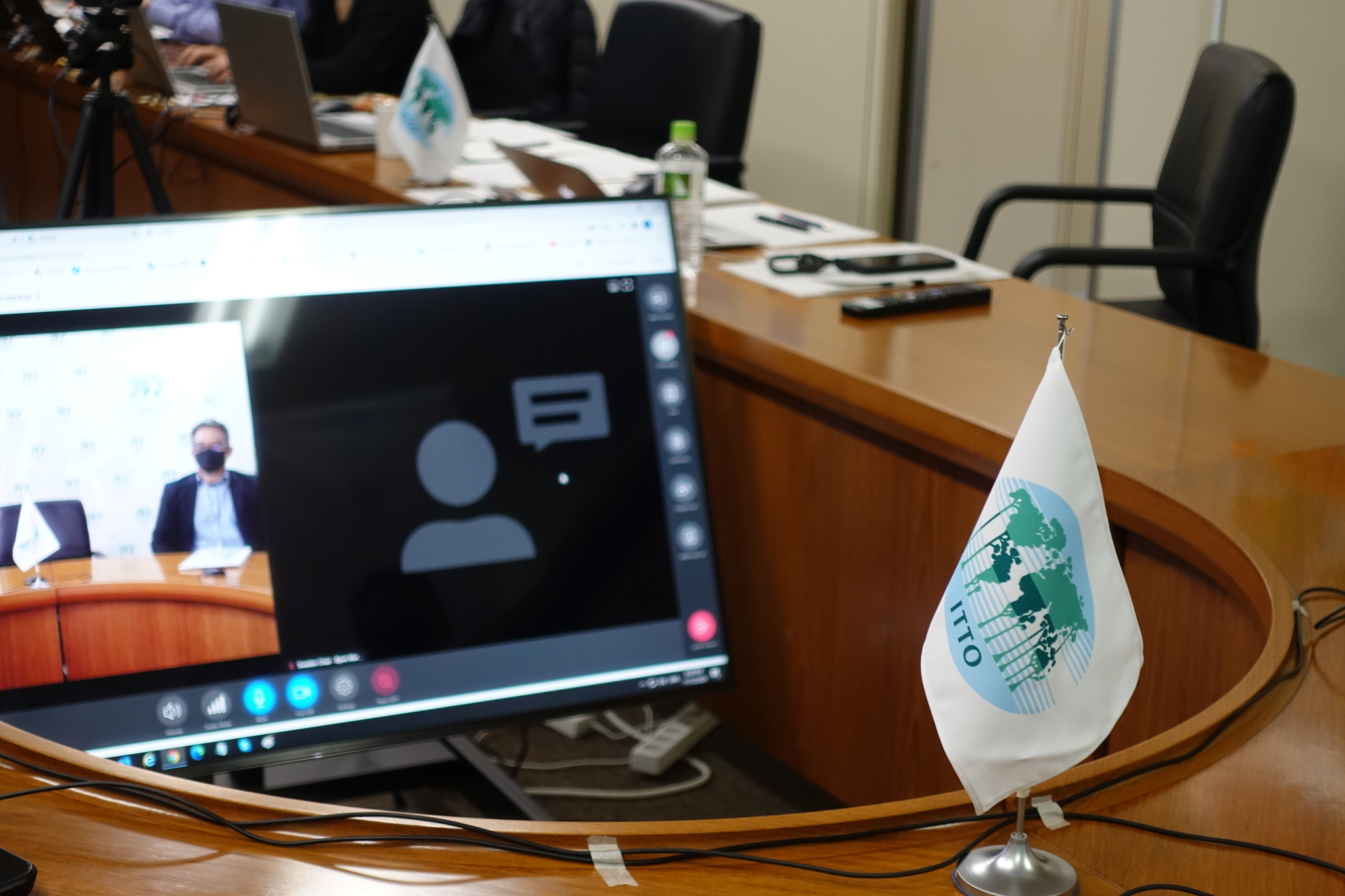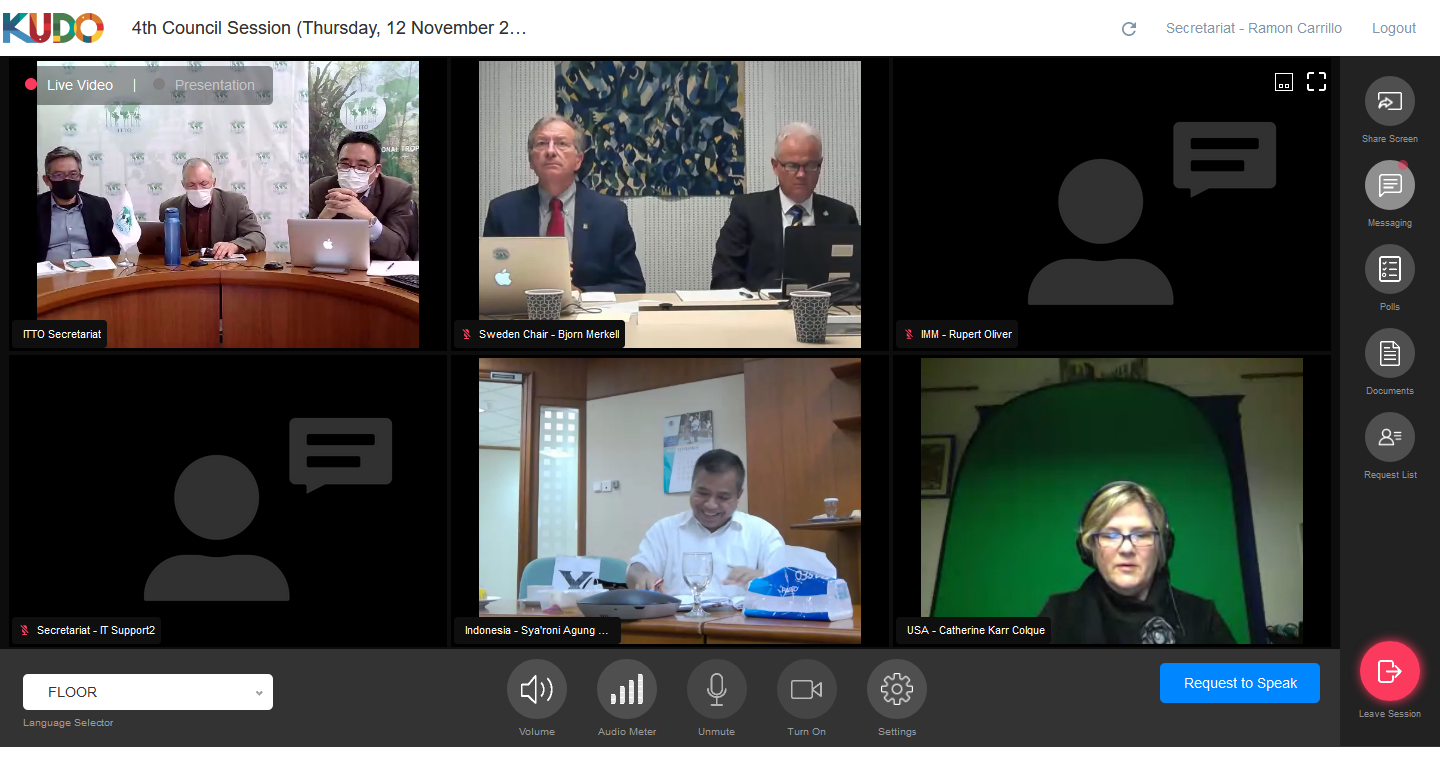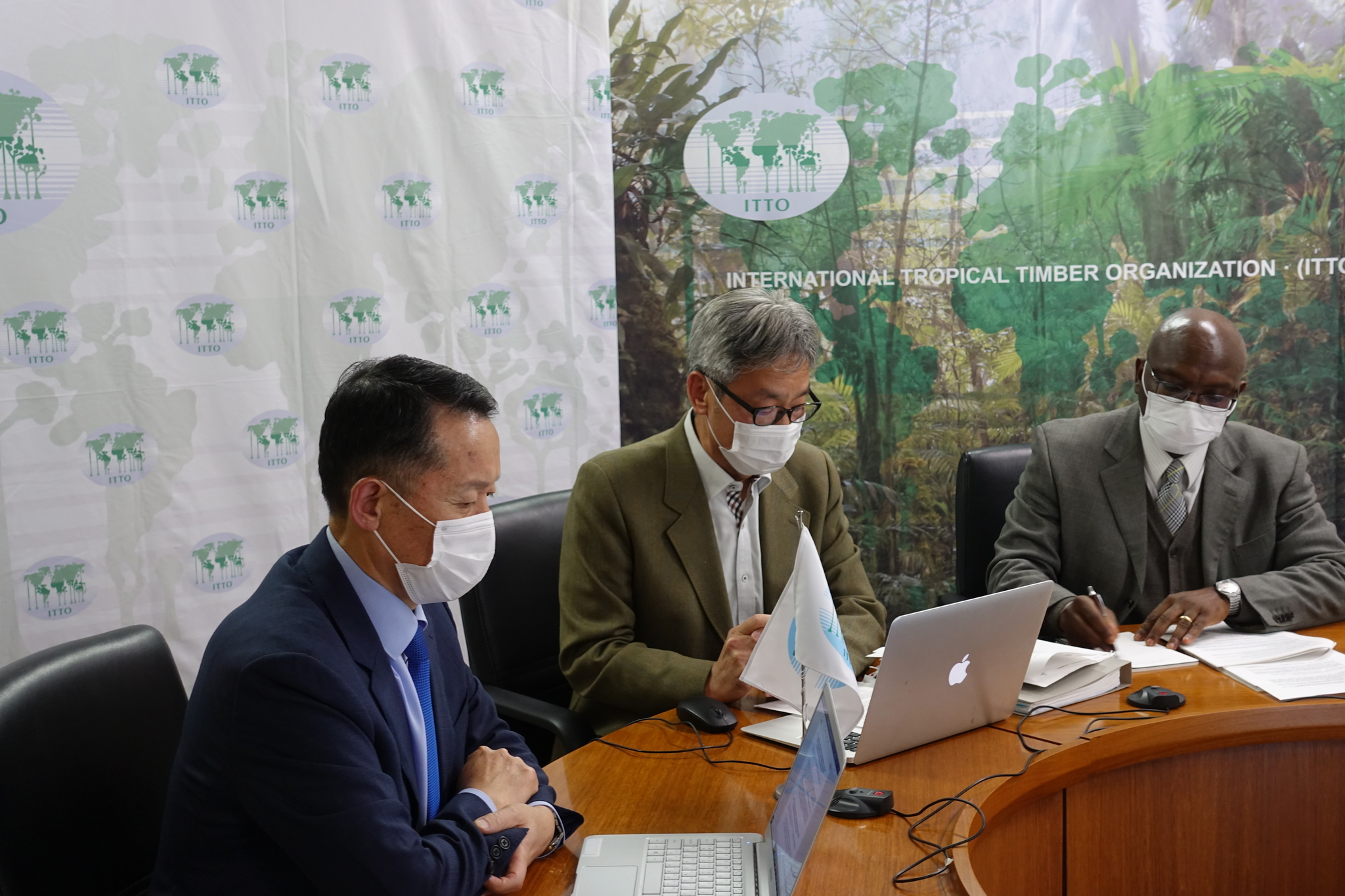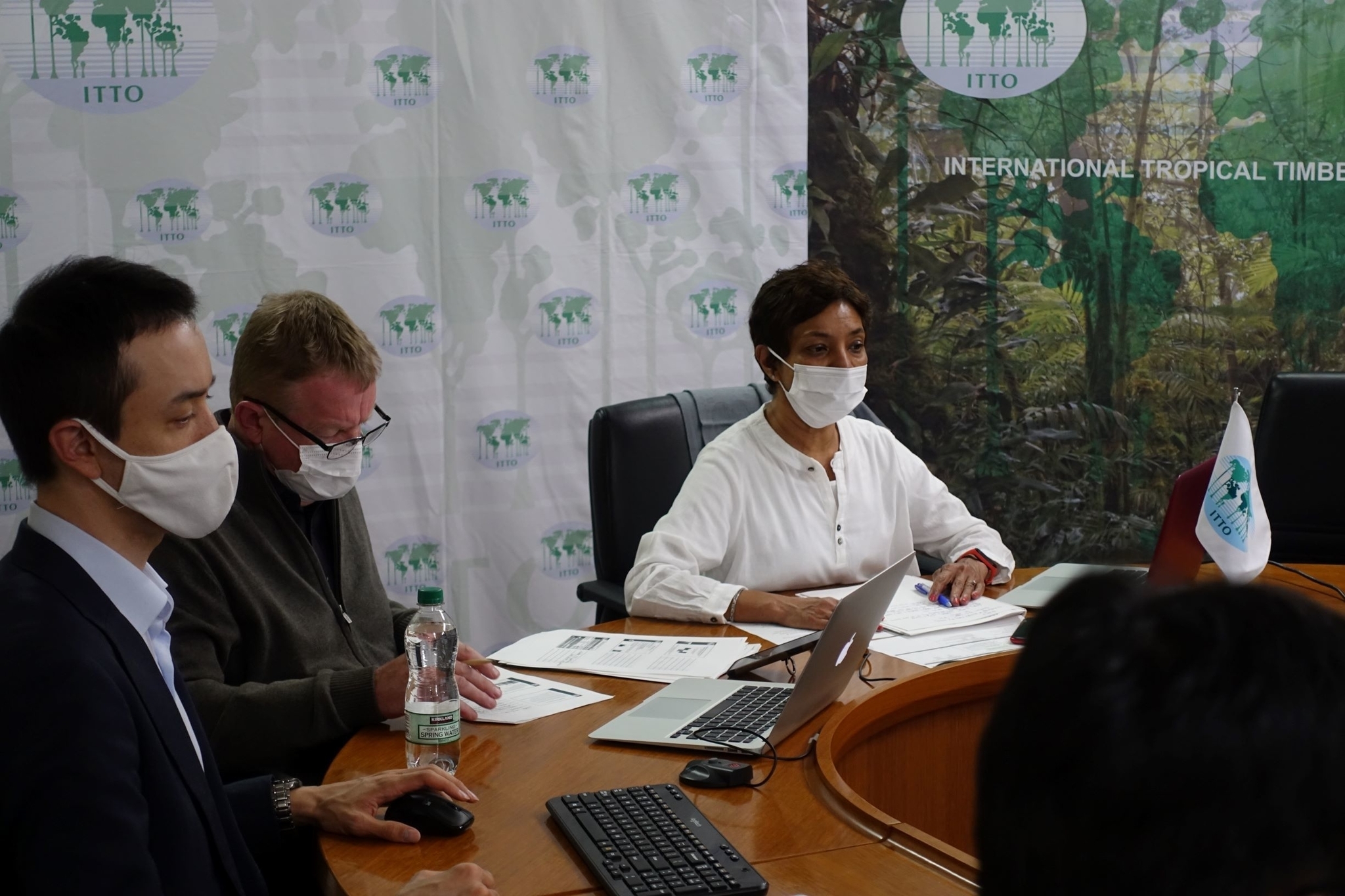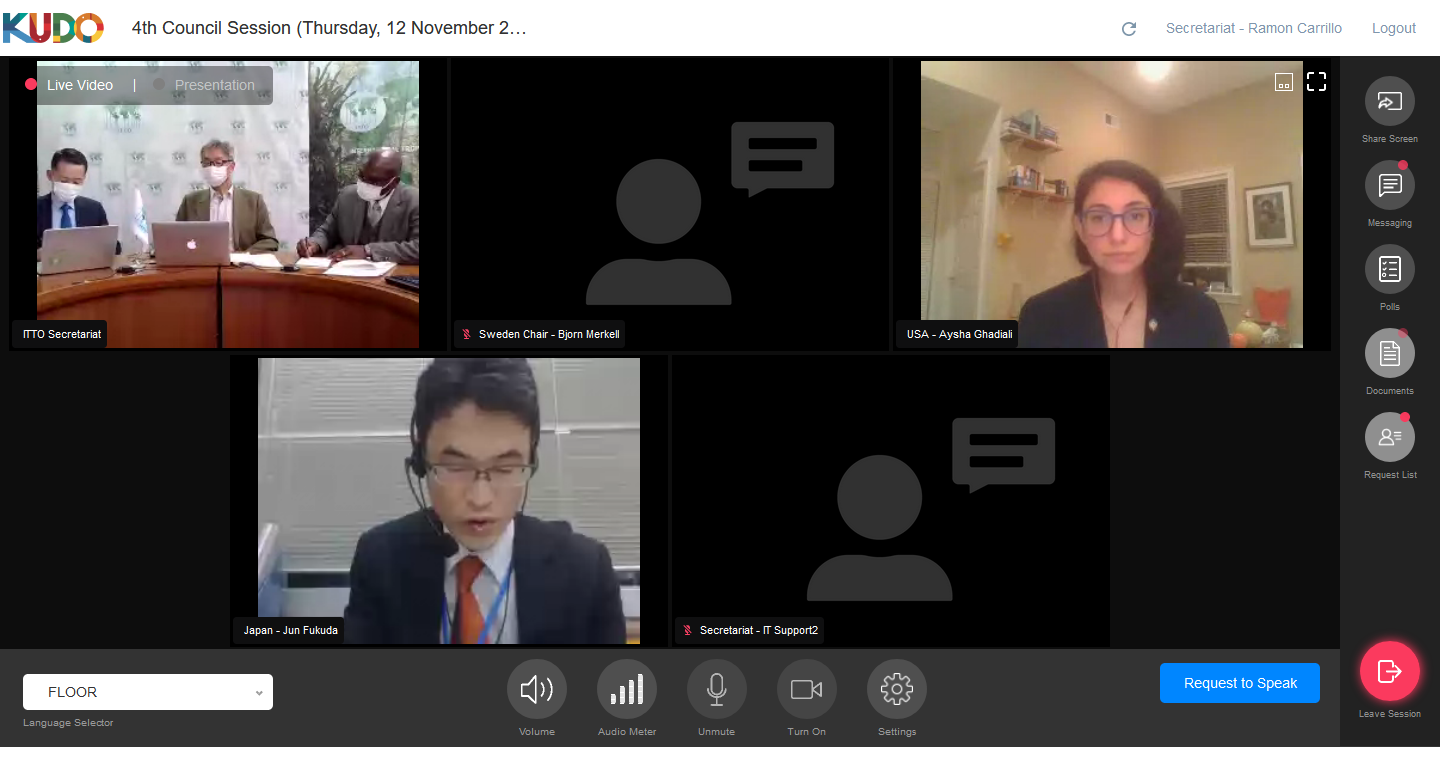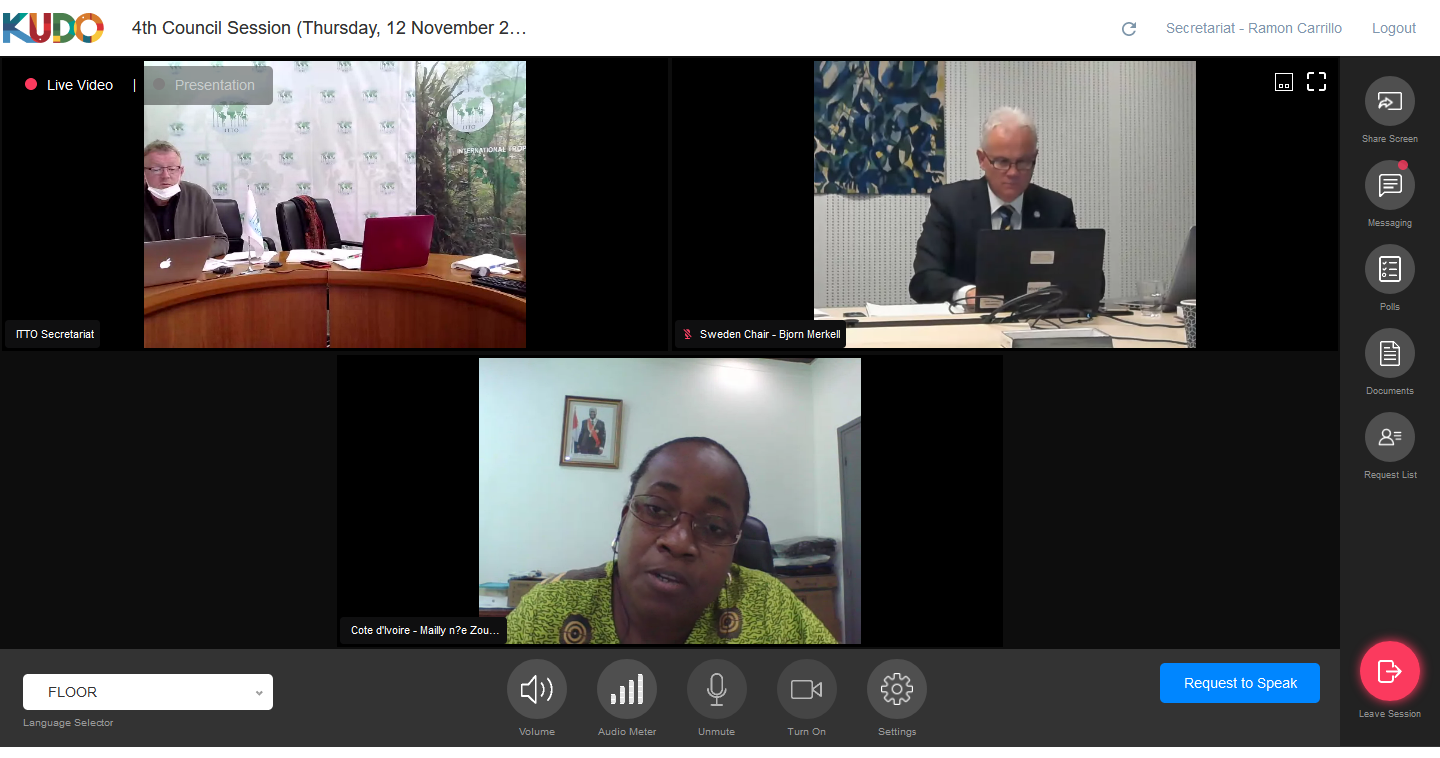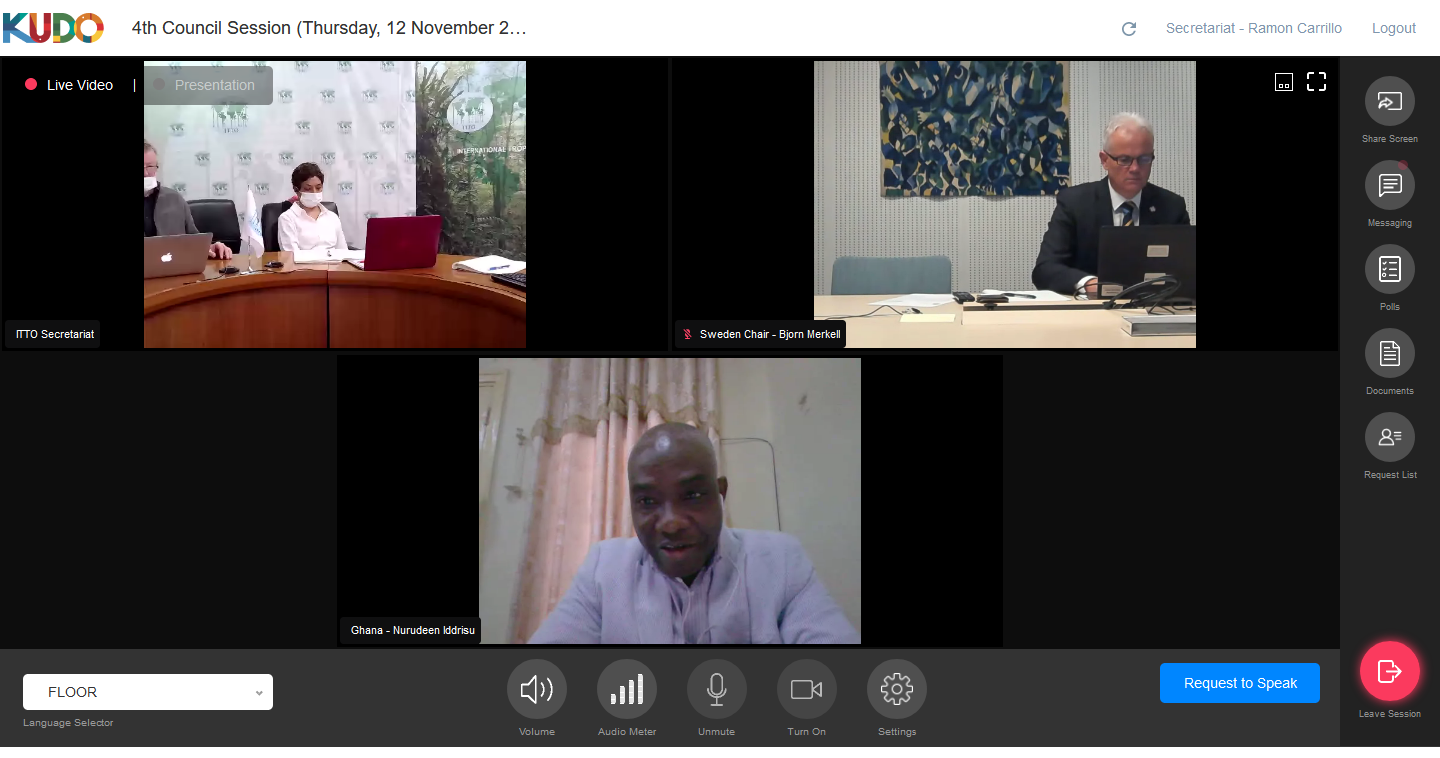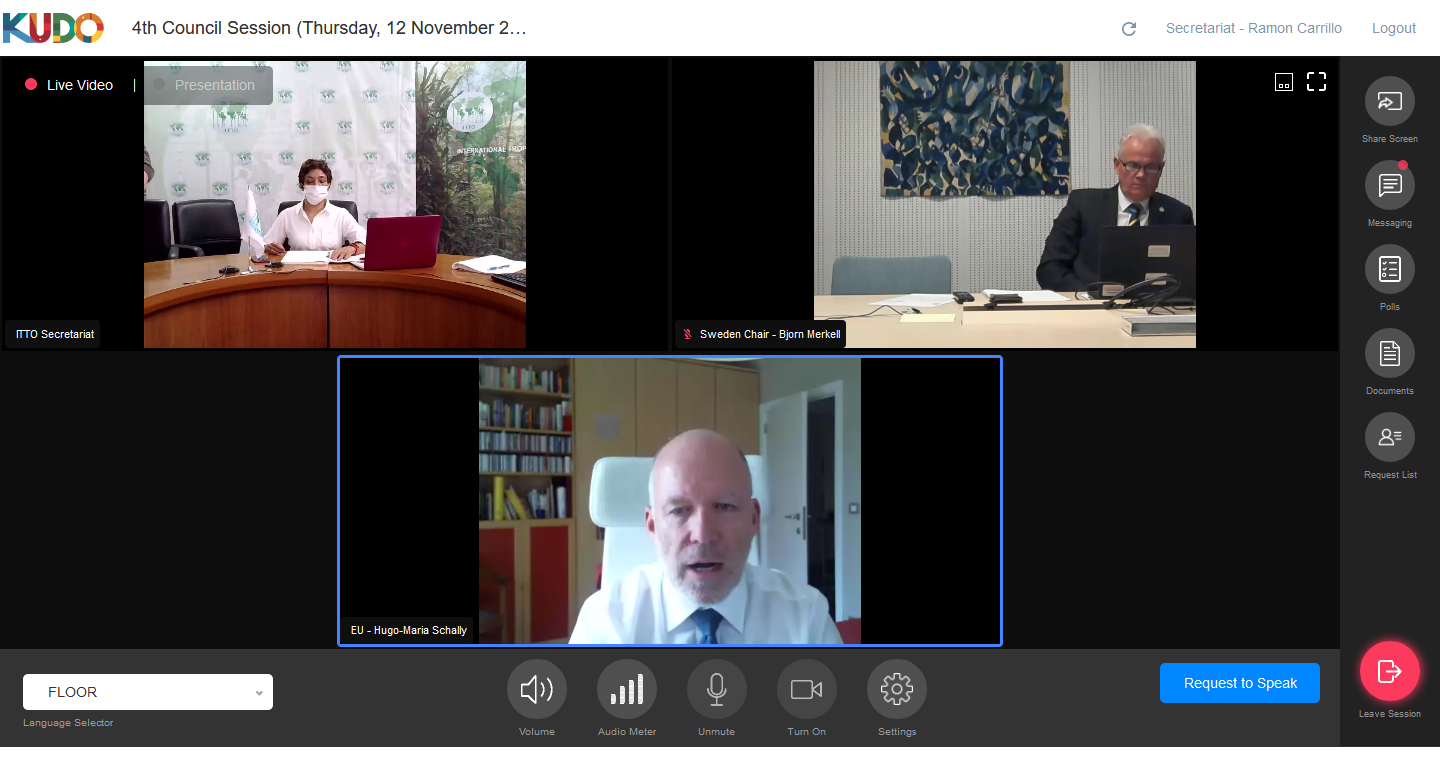Council set to award 20 new Fellowships
Thursday, 13 November 2020: The ITTO Fellowship Selection Panel, which met virtually this year, has recommended the awarding of 20 ITTO Fellowships at the 56th Session of International Tropical Timber Council. The newest group of Fellows is from 14 producer countries and one consumer country and includes nine women, or 45% of the awards. The total value of the Fellowships is about USD 150 000.
ITTO offers Fellowships through the Freezailah Fellowship Fund to promote human resource development and strengthen professional expertise in member countries in tropical forestry and related disciplines. The goal is to encourage the building of expertise in future generations in the sustainable management of tropical forests, the efficient use and processing of tropical timber, and better economic information on the international trade in tropical timber.
The Fellowships to be awarded will be used by 13 awardees to pursue postgraduate degrees in topics ranging from assessing the potential of REDD+ and the restoration of degraded natural tropical forests; by three awardees to prepare technical documents, including one on economic aspects of forest restoration using exotic species as pioneers; by three awardees to conduct study tours, such as a field trip to assess forest practices for promoting the sustainable management of natural forest ecosystems and ensuring community livelihoods; and by one awardee for a short course on project monitoring and evaluation.
The report of the ITTO Fellowship Selection Panel was presented to the Council by Ms Sheam Satkuru from the Secretariat on a packed day 4 of the 56th session, which is being held virtually this week. The Council will consider the recommendations of the panel and make a final decision on the awards before the close of the session.
Survey on furniture trade reported
The Committee on Economics, Statistics and Markets and the Committee on Forest Industry met again jointly on day 4, following its first sitting the previous day. Among other things, it received a report on the work of the Independent Market Monitor (IMM), a European Union (EU)-funded project hosted by ITTO.
Consultant Sarah Storck reported on a recent IMM study of the furniture sector, which drew on interviews with Asian furniture manufacturers and European furniture buyers as well as trade-data analysis and expert opinion. The study found that “assurance of legality” was the second-most important factor—after quality—in the purchasing decisions of European furniture companies. This was encouraging for the EU’s Forest Law Enforcement, Governance and Trade programme, said Ms Storck. The study also revealed that, among EU furniture companies, Indonesia had the lowest perception of difficulty in proving negligible risk of illegality and China the highest.
The joint session of the committees received a report on an IMM study on forest-sector investment and information from the Secretariat on the area of certified tropical forests in 2019.
Transboundary conservation project reviewed
Also on day 4, the Committee on Reforestation and Forest Management met to discuss its wide-ranging project and policy work. Among other things, it recommended to the Council the immediate funding of five projects and one pre-project.
The committee reviewed two recently completed projects and declared them closed. ITTO Secretariat project Officer Hwan Ok Ma reported on one of these, which was designed to increase Myanmar’s national capacity in biodiversity conservation.
The Tanintharyi Mountain Range, which spans the border between Myanmar and Thailand, is a globally important terrestrial ecoregion containing a high diversity of bird and mammal species, including the world’s smallest mammal, Kitti’s hog-nose bat. The project, which is part of a longer-term effort to encourage transboundary conservation cooperation in the area, conducted biodiversity and socioeconomic surveys; trained Forestry Department staff and local communities in biodiversity monitoring; established initial institutional mechanisms for transboundary biodiversity conservation in the area; and carried out work to enable local people to sustainably improve their livelihoods.
Project on sacred forests completed
Secretariat project officer Polycarpe Masupa reported that the aim of the second completed project reviewed by the committee on day 4 was to improve the management of sacred forests at two Ramsar sites in southern Benin by building the capacity of stakeholders to restore these religiously important forests and increase local incomes, as described recently in the Tropical Forest Update.
Timber-tracking and mangrove conservation projects completed
Two projects were reported completed under ITTO’s thematic programmes. One of these helped develop a timber-tracking system in Panama (as reported in TFU 29/2; see also the video below), which is already proving a valuable tool for the Ministry of Environment by increasing transparency and ensuring the legality of timber flows in the pilot area. The Ministry plans to adopt the system nationally.
The second completed project reported under the Thematic Programmes on day 4 assisted in the formulation of a national strategy in Guatemala for the conservation and sustainable management of the country’s mangrove resources; this strategy led, in turn, to the enactment of a national regulation on sustainable mangrove management in 2019. The project also built local capacity in mangrove conservation, rehabilitation and sustainable use in four pilot mangrove areas involving 13 local communities.
Biennial Work Programme
The Council discussed progress on the implementation of the current Biennial Work Programme (BWP) and a modified BWP for 2021–2022. The proposed BWP would comprise 24 activities in five aspects: 1) field-oriented activities; 2) normative work; 3) collaboration; 4) communication and outreach; and 5) analytical, statistical and other recurring work. The total budget would be USD 1.86 million in core operational costs and USD 4.35 million in voluntary contributions. Council members sought clarification on the proposal for ITTO to take over management of the Global Timber Tracking Network; the Organization’s work to develop curricula on legal and sustainable supply chains and market access; and whether the BWP could be strengthened in its response to the impacts of the COVID-19 pandemic on tropical forest communities and the tropical forest sector.
Closed session
Delegates of ITTO member countries met in a closed session towards the end of day 4 to deliberate whether to extend the term of the current Executive Director, Dr Dieterle.
The International Tropical Timber Council meets at least once a year to discuss a wide-ranging agenda aimed at promoting sustainable tropical forest management and the trade of sustainably produced tropical timber.
Daily coverage of the session by IISD reporting services is available at https://enb.iisd.org/forestry/itto/ittc56/

